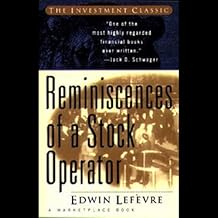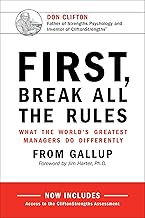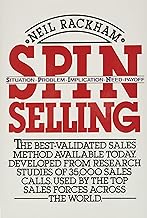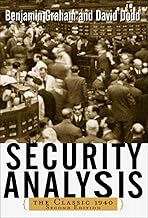
So Good They Can't Ignore You: Why Skills Trump Passion in the Quest for Work You Love
Cal Newport, Dave Mallow, et al.
4.5 on Amazon
37 HN comments

The Richest Man in Babylon: Original 1926 Edition
George S. Clason , Charles Conrad, et al.
4.7 on Amazon
37 HN comments

Basic Economics
Thomas Sowell
4.8 on Amazon
35 HN comments

Reminiscences of a Stock Operator
Edwin Lefevre, Rick Rohan, et al.
4.6 on Amazon
35 HN comments

First, Break All the Rules: What the world's Greatest Managers Do Differently
Jim Harter, Marcus Buckingham , et al.
4.6 on Amazon
34 HN comments

Venture Deals: Be Smarter Than Your Lawyer and Venture Capitalist
Brad Feld and Jason Mendelson
4.7 on Amazon
31 HN comments

Delivering Happiness
Tony Hsieh
4.6 on Amazon
30 HN comments

SPIN Selling
Neil Rackham
4.5 on Amazon
30 HN comments

Nickel And Dimed: On (Not) Getting By In America
Barbara Ehrenreich
4.3 on Amazon
29 HN comments

The Five Dysfunctions of a Team: A Leadership Fable
Patrick Lencioni
4.6 on Amazon
28 HN comments

The Startup Owner's Manual: The Step-By-Step Guide for Building a Great Company
Steve Blank and Bob Dorf
4.5 on Amazon
27 HN comments

Give and Take: A Revolutionary Approach to Success
Adam M. Grant PhD, Brian Keith Lewis, et al.
4.6 on Amazon
25 HN comments

Titan: The Life of John D. Rockefeller, Sr.
Ron Chernow
4.7 on Amazon
23 HN comments

The Challenger Sale: Taking Control of the Customer Conversation
Matthew Dixon and Brent Adamson
4.5 on Amazon
22 HN comments

Security Analysis: Principles and Techniques
Benjamin Graham and David Dodd
4.7 on Amazon
22 HN comments
wrycoderonMay 28, 2018
Fascinating story of a fabled trader from the bucket shops of mid-America in the Gaslight era to the roaring twenties on Wall Street.
https://smile.amazon.com/Reminiscences-Stock-Operator-Commen...
travmattonDec 5, 2020
rakkieonJan 8, 2019
andjonesonSep 28, 2011
http://www.amazon.com/Reminiscences-Stock-Operator-Edwin-Lef...
sowbugonDec 2, 2019
https://en.wikipedia.org/wiki/Reminiscences_of_a_Stock_Opera...
sowbugonDec 22, 2017
https://www.amazon.com/Reminiscences-Stock-Operator-Edwin-Le...
iworkforthemonSep 14, 2010
cfontesonNov 3, 2015
The book is a mixture of fiction and real life and it's just great! One of my favorites
VolscioonJune 28, 2010
Absolute classic.
Beyond Candlesticks: New Japanese Charting Techniques Revealed, Steve Nison
You might not end up using candlesticks, but they help you understand time/strength in stock movement.
Also read this blog: http://tradermike.net/
jzwinckonMay 9, 2013
pmoriartyonOct 24, 2016
One of the most famous examples: Jesse Livermore[1], whose Reminiscences of a Stock Operator[2] is one of the most recommended trading books ever. (I recommend it too. It's awesome.)
He never climbed the corporate ladder, but did start out writing prices on a blackboard for a brokerage. He went on to become a hugely successful trader, only to lose it all, and repeated this cycle many times.
[1] - https://en.wikipedia.org/wiki/Jesse_Lauriston_Livermore
[2] - https://www.amazon.com/Reminiscences-Stock-Operator-Edwin-Le...
parallel_itemonJan 4, 2019
My Life as a Quant by Emanuel Derman
The Quants by Scott Patterson
A Man for All Markets by Edward O. Thorp
Reminiscences of a Stock Operator by Edwin Lefevre
Flash Boys by Michael Lewis
deehouieonAug 8, 2021
Lefevre, E. (2004). Reminiscences of a stock operator (Vol. 175). John Wiley & Sons.
Kramer, C. (2000). " Devil Take the Hindmost: A History of Financial Speculation" by Edward Chancellor (Book Review). Finance and Development, 37(1), 53.
Mackay, C. (2012). Extraordinary popular delusions and the madness of crowds. Simon and Schuster.
KaworuonDec 10, 2012
That bullet point stood out because it reminded me of a passage from "Reminiscences of a Stock Operator":
Sometimes you just have to pay your tuition.
Edit: Formatting
chasingsparksonMay 30, 2010
More than most professions, trading requires you to fundamentally alter the way you respond to stimuli. We have some natural biases that make us pretty unsuited to trading. Traders who are successful are the ones who remodelled their brain, a job that often starts with an intellectual sledge hammer. Studying a list of proverbs, no matter how good they might be, will not prove profitable. They might act as a good scaffold to lean on while "paying your tuition," but I am skeptical.
(This argument can be expanded to most proverb-style writings. In fact, I was going to write this in response to one of the 37,000 threads regarding ReWork during that mania.)
jakartaonFeb 8, 2010
I recommend basically reading books by:
Peter Lynch, Phil Fischer, and then chapters 8 and 20 of the Intelligent Investor. The book, Applied Value Investing, is also a pretty good place to start that actually does a lot of things well, combining both theory with practical case studies.
-Reading the Buffett Partnership letters (not the Berkshire letters) is very helpful for someone managing small sums of capital, say below $10M
In addition, you need to read and learn about financial accounting and valuation. John Tracy's How to Read a Financial Report is a good starter... for valuation Aswath Damodaran has a pretty good book that can be combined with McKinsey's book on the subject. Beyond that, some more advanced accounting books, especially forensic stuff is great to know. Financial Shenanigans and Creative Cash Flow Reporting are where I'd start with that.
To be really good you also need to read quite a bit about psychology/mental models. Look for speeches/lectures by Charlie Munger. Books like Stock Market Wizards/anything that contains a ton of interviews with investors are also great. Reminisces of a Stock Operator is pretty good for giving you an account of the ups and downs that come with investing -- the guy the book is based off of blew his brains out. Studying financial history is also a must, especially with learning about prior bubbles.
Finally, you just have to commit to reading a whole lot, every day, and becoming a learning machine.
markus_zhangonMar 14, 2020
I once read the "Reminiscence Of A Stock Operator" and my edition happens to include large paragraphs of description of the market at that time, and they are really fascinating and I felt that I learnt a lot.
maestonMar 14, 2020
I've also read Reminiscence of a Stock Operator and I found that, while interesting, very little of that informs how the market works nowadays. It did shine a light on why TA is still a thing nowadays - a flavour of TA used to work historically and you can still see echoes of that today.
mmhsiehonMar 28, 2020
Security Analysis by Graham and Dodd
NrsolisonJan 25, 2016
It's a fundamentally simple idea but when you actually try to apply it to a real living breathing market, it becomes indistinguishable from electronic warfare because that's what it is!
A lot of the shenanigans that people point to are just different techniques to try and suss out the market microstructure and are in effect no different from trading techniques that evolved in the 1920s.
The best HFT book I ever read was "Reminiscences of a Stock Operator" because if you look at what he's saying and then replace the people in the book with electronic agents, you end up right where we are with HFT.
travmattonJan 19, 2020
“Reminisces of a Stock Operator” by Edwin Lefevre. Thinly veiled autobiography of Jesse Livermore, a 1920/30’s trader and his experiences, including foreseeing the crash of 1929.
calpatersononJune 22, 2017
Most of these are now prohibited which I'm sure doesn't eliminate them but it makes them much less common - short squeezes in particular are now very very rare. BTC markets obviously won't have any restrictions.
Amazon link for anyone interested in the book (make sure you get the annotated edition): https://www.amazon.co.uk/dp/0470481595/
lordnachoonJuly 4, 2021
The thing is, it didn't feel like a struggle, in the way that writing an assigned essay might feel. It was just a number of work related things that added a bit of context to what I was doing, giving my work meaning. It also provides the links to all the adjacent topics in a field, giving you the keywords/hooks for further learning.
There are of course jobs where you literally are working, doing the same things that you do during the week, in the same office. That kid of thing leads to burnout, and if you're thinking about that perhaps gather some more experiences before you decide.
sansnommeonMar 28, 2020
Avoid pop finance books that is light on numbers. If you want to understand the qualitative aspects/culture/history, books like Flash Boys or Flash Boys: Not so fast are more than sufficient. Stay away from "technical" books that are designed for layman and non-technical readers. They will handwave Black Scholes and economic math and you will simply be going through the movements without truly understanding.
Books like Reminiscences of a Stock Operator are great secondary books to supplement your primary readings. You don't give a beginning programmer Pragmatic Programmers/Clean Code/Programmers at Work when he or she can barely write a hello world, let alone a quicksort. You want a intro to programming course followed by something like SICP to lay in the foundations of abstraction and computer science. It is the same for finance. Half of the books in this thread are either financial pop science or has little relevance to somebody who wants a rigorous understanding of how the stock market system works.
Also to note, Buffet and A Random Walk Down Wall Street are books that espouse certain schools of thought on managing portfolio. Judge them by their history and backtest their theories rigorously. It is like Object Oriented Programming, fads wax and wane with time and everyone has their opinion on how trading should work so take things with a grain of salt. Lastly, trading and managing a 10 billion dollar fund is quite different from e.g. 100k in your tax free social security account due to stuff like network effects and doors that can only be opened when you have enough zeroes on your spreadsheet so what's good for the goose is not always great for the gander.
Once you are done with stock markets, get a macroeconomics textbook to understand how it ties into the federal reserve (or central bank) and how government bonds affect liquidity, that sort of thing. Again, avoid pop science books which shows up way too often on HN (this is worse with biology, another subject that this forum has a poor grasp of).
HolyLampshadeonMar 28, 2020
Excluding some of the technical details, specifically related to US Equities, which are a bit outdated, it is hands down the best book on the subject of market participants and their interactions.
Books like Reminiscences of a Stock Operator are great as well because they provide a little historical context to market regulation and improvements to market structure.
If someone were particularly interested in clearing and settlement there is also After the Trade is Made
reverend_gonzoonAug 9, 2012
This is utter crap.
As long as there has been a transfer of money, there has always been a market for faster access to information and faster use of that information. Its only in the last ten years that the speed is so fast it has to be done electronically.
There's a autobiography of a stock trader written in the early 1900s called Reminiscence of a Stock Operator where, in 1907/1908, the author is complaining that the time to execute a trade is too long. Specifically, he would notice a price movement on the tape, tell his runner to go (for example) buy 100 at $60, but by the time the runner was actually able to execute, the price was at $80, hence he's getting a worse price. The solution back then was faster runners, then faster communication (such as hand signals), then computers, etc.
Wall Street is not just HFT. Different firms have different ways of trying to make money. Some are speculators, some are value investors, some are arbitrageurs, some are market makers. Some companies trade to hedge risk in, for example, commodities that they expect to buy in the future. Others trade to hedge currency risk against countries they do business with.
To claim that Wall Street used to bet on companies that build things but now only bet on companies that make money is terrible mass-market journalism at best.
rl3onFeb 22, 2015
Like the parent commenter, I was also on the same path and stopped. Despite diving into the topic for over a year, I came to the sobering realization that I had insufficient starting capital to properly manage risk.
Standard commission fees will eat you for breakfast trying to exercise a 1% (position) risk model on an insufficient amount of capital. Things like Robinhood[0] unfortunately didn't exist back then.
As far as books, Trade Your Way To Financial Freedom cannot be praised enough. Though I usually refrain from mentioning it because the title has this get-rich-quick vibe, it's nothing of the sort. Van Tharp was (and for all I know, still may be) the world's premier trading psychologist. The book drives home the concept of risk management in automated trading systems like no other, especially remarkable considering when it was written.
The Market Wizards books, at least the first two, are pretty much required reading.
The only book I might add to the list would be Reminiscences of a Stock Operator[1]. While admittedly I didn't find it as useful as the other books, it's still a good read and widely considered to be the seminal book on trading.
[0] https://www.robinhood.com/
[1] http://www.amazon.com/Reminiscences-Stock-Operator-Edwin-Lef...
VLMonApr 19, 2016
Reminiscences of a Stock Operator by Edwin Lefèvre
Where are the Customers Yachts by Fred Schwed
Nothing has really changed psychologically since those books. The same people are doing the same things for the same reasons, just with different numbers and tools. This will provide some background in those areas. Very much like music or sex (edited to add, or programming), young people like to think their generation invented the topic, but not as much has changed as you'd think.
Note that just because its hilarious reading what Livermore did a long time ago, doesn't mean you won't get thrown in jail if you tried it today. So these are like anthropological case studies, not preachy instruction manuals. Make sure you get that.
Aside from that I'd propose the usual critical thinking skills. Whenever you hear or read something: Follow the money. From his perspective, why is he telling me this? Where is this on the lifecycle of ideas from new (perhaps only to you) to conventional wisdom (may already be obsolete) to obsolete, and is this a linear time or circular time situation?
Finally bad people or bad motivations don't necessarily torpedo an idea. Take for example haircuts. Ask your barber how often you should get a haircut, that will be every paycheck please, because he's paid transactionally. Likewise, you ask your financial advisor or broker how often you should dollar cost average, because he's paid transactionally guess what his advice will be. However, corrupt as that may appear on the surface, it might none the less be correct advice, for reasons having nothing to do with your broker's revenue stream!
anonuonAug 8, 2021
What you'll notice is "plus ça change, plus c'est la même chose"... It's all self similar. The same concepts and patterns back then are the same concepts that people chase today.
kolbeonAug 31, 2013
We now complain about a few pennies being scraped off of each order, which stings a little, but read Reminiscences of a Stock Operator to get some context about the dollars that used to be scraped off of each order by pit traders. Today, if you're trading a low dollar stock like Bank of America or Zynga, the vast majority of the money you're giving up to make a trade goes to brokerage, rather than to market makers like Getco.
Where computers are involved in trading, there will always be an edge to be gained from writing better, faster programs. We can take some steps to de-emphasize making programs that have a speed advantage (e.g. assign random latencies to all entered orders, or to bring all orders in each stock to trade on a single, specially-designated exchange), but I'll take computers over pit traders any day.
conistonwateronOct 21, 2017
Isn't this like literally one of the oldest tricks in the book? I remember reading Reminiscences of a Stock Operator, which talks in part about early 1900's bucket shops, and the same stuff was there even then. Similar stuff is also mentioned in market microstructure textbooks with market makers on one side and informed traders on the other side.
Is rigged even the right word here? It might be, but did the bookmakers have a responsibility to keep accepting their bets? Is it different from claiming that casinos are rigged?
SealyonJune 19, 2013
I actually ran 2 different bots with a few variations of each (for different brokers).
My first bot was an arbitrage bot running on different markets, USD, GBP and AUD. There is still huge opportunity to make money using arbitrage as I've not seen many people do it well. The trouble comes from transferring the funds between brokers, there is often a cost incurred that you must consider and price into any profit equation. @skarmklart, yes the payoff compared to the trading volume is small, but it is low risk and almost guaranteed profit.
I ran the arb bots for a few months and made around $15,000 after which I decided to step it up a level. (I started with $100)
Trading and investments always consist of a balance between risk and return. The risk for arbitrage is very low, and so the return is also low (but consistent). The return for technical analysis trading is much greater but the risks are also larger.
My second bot was programmed to take advantage of technical analysis. I realised that in the bitcoin world it is actually much simpler than people lead you to believe. I set up a database to capture price feeds, then used some free technical analysis tools to produce buy and sell signals automatically. I then plugged the signal feed into my trading api (which I wrote from my original bot) to execute my orders.
Here's some useful links: http://ta-lib.org
Books: Reminiscences of a Stock Operator gives you an insight into trading psychology
Market Wizards (there are 3 books in this series): http://en.wikipedia.org/wiki/Market_Wizards
pelleronNov 27, 2016
"Of course the same things happen in all speculative markets. The message of the tape is the same. That will be perfectly plain to anyone who will take the trouble to think. He will find if he asks himself questions and considers conditions, that the answers will supply themselves directly. But people never take the trouble to ask questions, leave alone seeking answers. The average American is from Missouri everywhere and at all times except when he goes to the brokers' offices and looks at the tape, whether it is stocks or commodities. The one game of all games that really requires study before making a play is the one he goes into without his usual highly intelligent preliminary and precautionary doubts. He will risk half his fortune in the stock market with less reflection than he devotes to the selection of a medium-priced automobile." (Emphasis mine.)
A good place to start might be by reading the Market Wizards series by Jack Schwager. (There are 4, all highly recommended.) Take note of the traders whose views you identify with, and research them, their strategies, and follow their recommendations down the rabbit hole.
https://www.goodreads.com/book/show/966769.Market_Wizards
https://www.goodreads.com/book/show/787719.The_New_Market_Wi...
https://www.goodreads.com/book/show/164131.Stock_Market_Wiza...
https://www.goodreads.com/book/show/13664829-hedge-fund-mark...
dwateronJan 28, 2021
https://en.wikipedia.org/wiki/Reminiscences_of_a_Stock_Opera...
Wall Street does not exist so that an individual can invest $100 and make a profit. It exists so that financial institutions can invest $100M and make a profit. It benefits from the illusion of the former though so the public is encouraged to believe that.
stevenjonDec 25, 2012
"Liar's Poker" by Michael Lewis http://www.amazon.com/Liars-Poker-Michael-Lewis/dp/039333869...
"Reminiscences of a Stock Operator" by Edwin Lefevre http://www.amazon.com/Reminiscences-Stock-Operator-Commentar...
"The Big Miss: My Years Coaching Tiger Woods" by Hank Haney http://www.amazon.com/Big-Miss-Years-Coaching-Tiger/dp/03079...
"The Professor, the Banker, and the Suicide King: Inside the Richest Poker Game of All Time" by Michael Craig http://www.amazon.com/Professor-Banker-Suicide-King-Richest/...